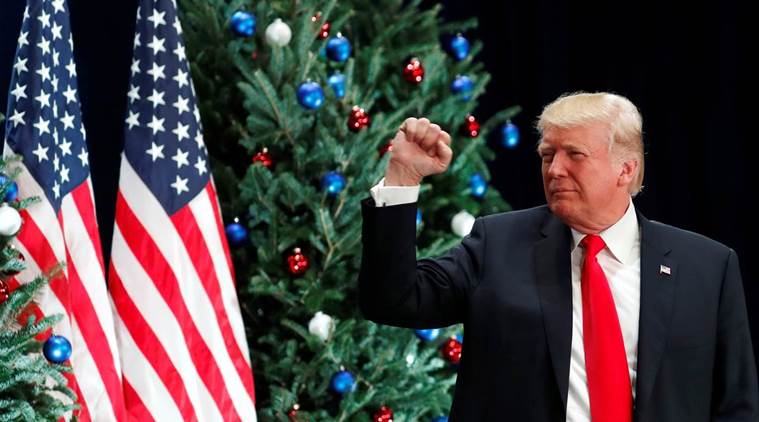Donald Trump plans $100 billion tax cut for the super-rich
The idea was floated by Treasury secretary Steven Mnuchin on the sidelines of the G20 summit in Argentina earlier this month. Mnuchin said the department was studying whether Americans could be allowed to account for inflation in determining capital gains tax liabilities.

The Trump administrations’ new plan has left the Democrats unimpressed. (File)
The Donald Trump administration is considering a $100 billion tax cut for the super-rich through a tweak that would not need Congress nod, according to NYT. This follows the huge, regressive tax cuts last year.
The idea is to change the way capital gains are calculated by taking into account the inflation-adjusted initial value of an asset. This would reduce the tax burden on investors and allow them to save more money.
4m 16s
It was floated by Treasury secretary Steven Mnuchin on the sidelines of the G20 summit in Argentina earlier this month. Mnuchin said the department was studying whether Americans could be allowed to account for inflation in determining capital gains tax liabilities. Capital gains represent the income someone receives from an investment over time.
Tax breaks for the super-rich have been one of the Trump administration’s recurring themes. As per the $1.5 trillion tax plan last year, which was passed by the Congress, the top 1 per cent of taxpayers — those making more than $730,000 — stand to get a 20 per cent tax cut, an average of about $37,000.
“If it can’t get done through a legislation process, we will look at what tools at Treasury we have to do it on our own and we’ll consider that. We are studying that internally, and we are also studying the economic costs and the impact on growth,” NYT quoted Mnuchin as saying. However, the use of executive power on such a significant change to the tax law can be vulnerable to legal challenges. Moreover, it may also alienate the middle-class, who formed the major chunk of voters that brought Trump to power.
It may be recalled that a similar move mooted during the regime of George HW Bush was rejected because it was seen as outside the scope of Treasury’s authority and only attainable via an act of the Congress.
Capital gains taxes are mainly paid by high earners, and they were untouched in last year’s law. Independent analyses have suggested that more than 97 per cent of the benefits of indexing capital gains for inflation would go to the top 10 per cent of income earners in America. Nearly two-thirds of the benefits would go to the super wealthy — the top 0.1 per cent of American income earners, NYT reported.
However, the Trump administrations’ new plan has left the Democrats unimpressed, calling it a “boondoggle for the rich”. “Treasury does not have the unilateral authority to take our tax code and expose it to widespread gamesmanship,” NYT quoted Senator Ron Wyden of Oregon as saying.







































No hay comentarios:
Publicar un comentario